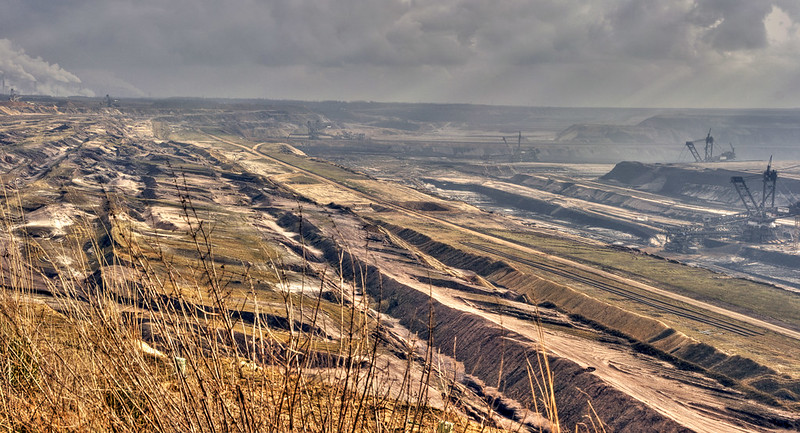It’s law: Germany will be coal-free by 2038
Parliament in Germany has passed a bill which means the nation will say goodbye to nuclear energy by 2022 and coal power by 2038.
G
ermany’s Bundestag, the lower house of parliament, on Friday passed a bill on the country’s exit from coal as a power source to meet climate targets.
The bill involves over 50 billion euros ($56 billion) for mining and power plant operators, affected regions and employees to cushion the impact of the transformation from coal to renewables.
Economy minister Peter Altmaier praised the deal, calling it a defining moment in German history.
“This is an irrevocable beginning of the end of the fossil fuels age,” he said in parliament.
“It is a project for generations,” he added.
Germany will abandon nuclear energy by 2022 and coal by 2038 at the latest, and will simultaneously aim for 55% cuts in greenhouses gas emissions by 2030 over 1990 levels.

A brown coal surface coal mine in Garzweiler, Germany. Photo by Bert Kaufmann/ Flickr
Utility groups, labour unions and energy consumers welcomed the agreement as it allows them time and money to cope with the transition, but green groups said the time schedule was too slow and the deal too costly for taxpayers.
The World Wildlife Fund’s German arm criticised the compensation payments to operators that it said would have had to phase out their plants anyway and now have additional money.
“The law does not fit in with the reality of the energy market, and not at all with the current climate-political challenges,” head of nature protection Christoph Heinrich said.
Costs of generating power from renewable sources have become increasingly competitive, and cheap gas is pushing coal out of the fuel mix in a trend that has been enhanced by the political will to drive up the cost of carbon emission allowances.
In the first half of 2020, renewables accounted for over 50% of German power production.
The ideas presented in this article aim to inspire adaptation action – they are the views of the author and do not necessarily reflect those of the Global Center on Adaptation.